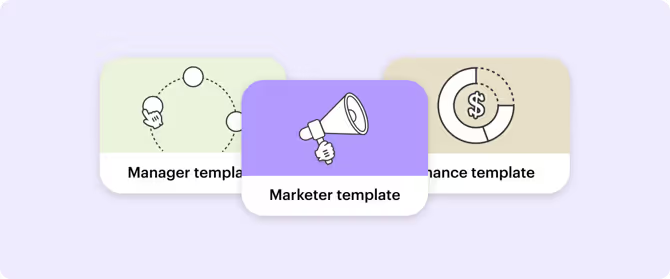4 Companies Who Nailed The New Employee Onboarding Experience

Streamline, organize, and automate your onboarding process like magic.

Onboarding is an important part of the employee lifecycle in terms of employee engagement, integration and retention. As highlighted in The Ultimate Guide to Successful New Employee Onboarding: Best Practices to Welcome Your New Hires, effective onboarding process benefits the employees across the board, from engagement, retention, performance, and advocacy, and engages the entire onboarding loop, from planning, applying, reviewing and improving the onboarding flow—all in all, resulting in a better and more profitable bottom-line for an organization as a whole.
There are a few renowned companies who have made a positive mark with their onboarding process. Our top picks include Google, Netflix, Square and Indeed. While these companies differ in services and products offered, each of them have developed a unique but impactful strategy when it comes to welcoming new employees.
Google’s Employee Onboarding
Google’s success can be tracked back all the way to its onboarding approach—the root and beginning of the employment journey.
Most companies have either one of two ways to approach onboarding—by having everything centralized within their HR department, or by delegating employee onboarding at the team level. Instead of a centralized strategy, Google’s onboarding process chooses the latter option. This system helps keep managers engaged with new employees while allowing the room for new hires to grow within their assigned roles.
During the beginning stages, HR managers actively work on establishing strong foundations with employees, weaving in the exemplary Google Culture.
Google’s onboarding focuses on five key elements:
- Clearly defining roles & responsibilities from day one;
- Matching new hires with peers;
- Helping employees build social networks within the workspace;
- Setting regular check-ins during a new hire’s first year;
- Establishing an open door policy.
As a big corporate conglomerate with a presence of over 80 thousand employees worldwide, Google’s success within it’s onboarding process stems from the trust the company puts in its people, setting up a balanced ecosystem of corporate conduct and friendly atmosphere.
*All Indeed reviews are directly quoted from Anonymous Google employees (present or former).
Netflix’s Employee Onboarding
Netflix aims to set employees up for success from day one. The company adopts a “welcome home” approach, ensuring employees feel secure and grounded stepping into a new workplace.
Following this approach, Netflix prepares all new hire necessities—such as office space, equipment and documents—for a smooth transition. New employee initiations start with an orientation process that is primarily ongoing for the first quarter of the employee’s first year.
Orientation covers company culture and vision, with insights spread out at different intervals throughout the employee’s learning process. During the onboarding period, managers ensure to schedule periodic introductions with different teams.
Managers also assign mentors to each new employee for additional guidance. In order to make their roles and the onboarding process feel engaging from day one, new employees are assigned key projects and tasks from the start. This ensures high engagement levels and a positive first impression which can have lasting effects, as the new employee feels immediately of added value.
*All Glassdoor reviews are directly quoted from Anonymous Netflix employees (present or former).
Square’s employee onboarding
At Square, the importance of first impressions during the onboarding process is key. The company took note of the effect first impressions can have with new employees and used it to their advantage. The prevailing opinion from employees about joining Square is the level of preparedness the company demonstrates on the first day of new hires.
In fact, the general consensus from Square employees is an overall positive onboarding experience. The onboarding process at the company is divided into three different stages, each stage focusing on a unique set of learnings: the company, the team and the individual.
The beginning of a new employee’s journey concentrates on helping new hires understand the vision of the company, learn the basic procedures and get educated about the products and services the business offers.
The second stage of the onboarding process focuses on the team, where new hires are introduced to different teams and observe the part each role plays within the team’s ecosystem.
The third stage of onboarding focuses on each individual employee, where managers discuss the details of the role, responsibilities and expectations.
Square makes welcoming new employees a serious matter, with a dedicated onboarding team taking care of the entire operation.
*All Glassdoor reviews are directly quoted from Anonymous Square employees (present or former).
Indeed’s Employee Onboarding
Indeed’s onboarding program is more unique than most businesses. Instead of onboarding new hires within designated departments, the company groups new hires across different departments together.
The objective is to build cross-functional relationships during the beginning stages of the employment journey. The system was set this way to allow new employees the opportunity to learn about the company culture through different perspectives, all the while creating strategic relationships.
The idea is for new employees to develop positive relationships in the hopes of stemming collaborations across different departments. Additionally, Indeed has developed many onboarding tools to support managers, such as tailored step-by-step guides and onboarding checklists.
These are tools that allow managers to utilize and tailor ressources to individual needs. The company believes in the power of community and the strength in networking from within.
*All Glassdoor reviews are directly quoted from Anonymous Indeed employees (present or former).
The application of a strategic employee onboarding program has many advantages for companies, and the return on investment is a positive one in the long-run.
%20(1).png)

%20(1).avif)


.avif)
.avif)








